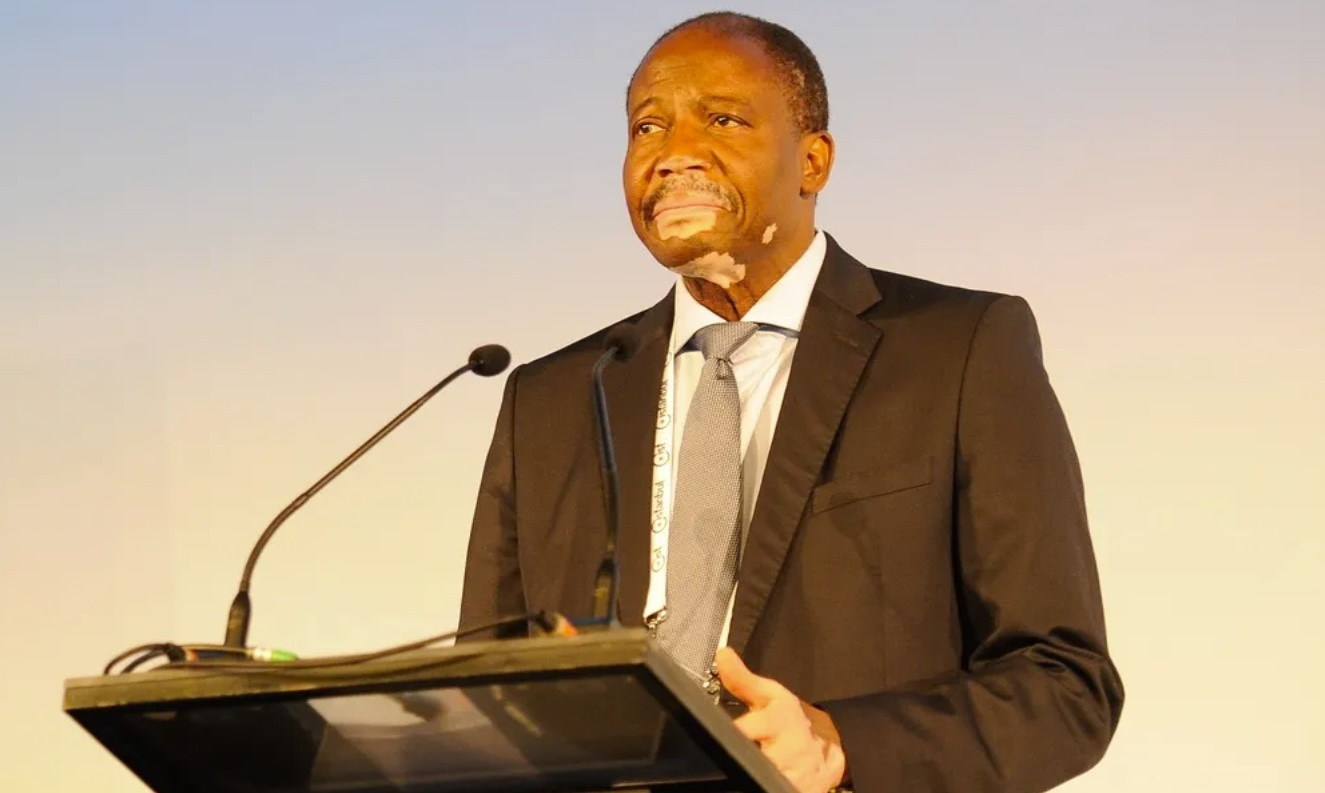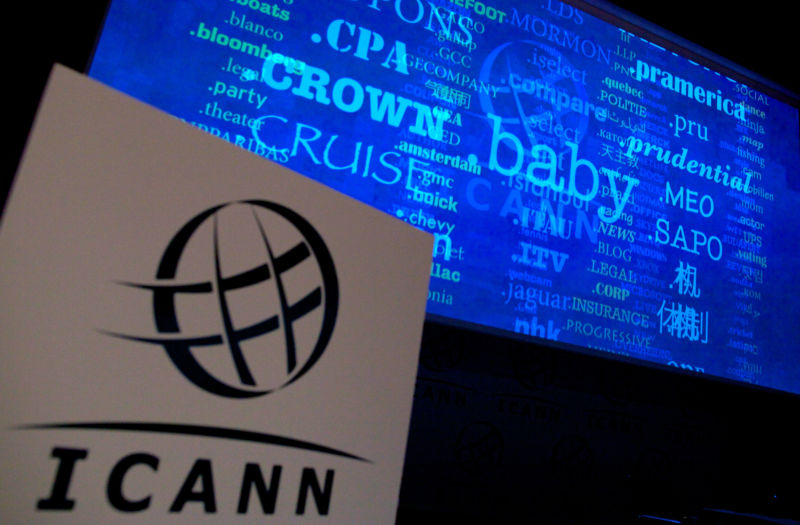ICANN’s Pierre Dandjinou on how they’re building a more inclusive internet

The Internet Corporation for Assigned Names and Numbers (ICANN), has over the last couple of months been working towards a more inclusive internet that will support additional scripts online.
This includes email addresses and website domain names written in Arabic, Cyrillic, and Devanagari alphabets, in addition to Latin’s ABC.
According to ICANN, the move presents governments with a unique opportunity to lead initiatives promoting digital diversity, participation in the digital economy, and linguistic diversity online.
ICANN says embracing an internet that accommodates linguistic and cultural diversity will not only enhance accessibility but also drive innovation and empower communities worldwide.
In this interview, TechTrends Media speaks to Pierre Dandjinou, ICANN’s Vice President of Stakeholder Engagement for Africa about this initiative. Pierre joined ICANN in December 2012 and coordinates the implementation of ICANN’s strategic plan for Africa. He’s also responsible for outreach, support, and engagement with all stakeholders including governments, civil society, and the private sector, in the African region.
ICANN’s work is dedicated to keeping the Internet secure, stable, and interoperable. Tell us about this.
To reach another person on the Internet you have to type an address into your computer – a name or a number. That address has to be unique so computers know where to find each other. ICANN coordinates these unique identifiers across the world. Without that coordination, we wouldn’t have one global Internet.
ICANN was formed in 1998. It is a nonprofit partnership of people from all over the world committed to keeping the Internet secure, stable, and interoperable. It promotes competition and develops policy on the Internet’s unique identifiers.
ICANN doesn’t control content on the Internet. It cannot stop spam and doesn’t deal with content issues of any kind. But through its coordination role of the Internet’s naming system, it does have an important impact on the expansion and evolution of the Internet.
In the last couple of months, we have seen you pushing for a more inclusive internet that will support additional scripts online. Talk to us about this.
ICANN has been conducting a global campaign aimed at raising awareness of the importance of universal acceptance (UA). The introduction of new generic top-level domains (gTLDs) into the Internet ecosystem over the last decade enabled the largest expansion of the Domain Name System (DNS) to date. There are now more than 1,200 active gTLDs representing many different scripts and character strings of varying length (e.g., .дети, .london, .engineering).
UA is a fundamental requirement for a truly multilingual and inclusive Internet. UA ensures that all valid domain names can be used by all Internet-enabled applications, devices, and systems regardless of script or character length. UA also supports the ability for email mailbox names to use characters in local scripts through Email Address Internationalization standards. For this to work, organizations and businesses need to ensure that their systems and services will work with the continuously expanding and evolving domain name space by ensuring their systems are UA-ready.
ICANN established a dedicated group called the Universal Acceptance Steering Group to raise awareness of UA and to share best practices. ICANN has been working with the global community for years and stands ready to support governments and others in their efforts to make the Internet more inclusive, diverse, and culturally rich.

There are more than five billion people on the Internet today (over 60 percent of the global population) and those users have access to 1,200 gLTDs, the majority of which are in English. However, there are billions of people who read and write in Arabic, Chinese, Amharic, Devanagari, and other scripts.
Today’s core applications, including browsers and email clients worldwide, struggle to correctly resolve and identify Internationalized Domain Names (IDNs), which are domain names and associated email addresses that use non-Latin characters or letters of different scripts. (IDNs are available in a variety of scripts including Devanagari, Amharic, and Arabic.) But many applications and platforms continue to rely on old standards, preventing users from loading web pages containing IDNs, sending emails to addresses based on IDNs, and accessing specific domains.
This inconvenience affects non-English-speaking users and hinders the true multilingual and inclusive potential of the Internet. This not only leads to the loss of native language, culture, and identity, it also affects users’ online experience. This issue also poses obstacles to the economic and business development of non-English-speaking Internet users. Languages and scripts are an integral part of our culture, a manifestation of the diversity and pluralism that exists in the world, and a testament to human ingenuity and our need to communicate, exchange information, and learn from each other.
The truth is, the Internet today is far from multilingual. How can we change that?
The global ICANN community is spearheading several projects with the goal of better adapting the Internet to the diverse languages and cultures of the world. UA is key to that goal. It enables businesses, governments, and other organizations to better serve their communities by ensuring their systems accept an increasing number of new domains, including non-Latin based and language-specific IDNs. Widespread adoption of UA is essential for the continued expansion of the Internet. This will enable millions of users to navigate the Internet via new gTLDs in their own local scripts.
UA and the expansion of gTLDs are especially important initiatives in a diverse continent like Africa. Africa is a region of focus for this initiative as ICANN prepares to open another round of applications for new gTLDs. These gTLDs go beyond the commonly known .com, .org, or .net and give businesses the ability to create stronger identities, better search engine optimization, and stronger global identities through their domain name.
What has been the biggest hindrance?
Despite the technical availability of IDNs, UA is not well supported by all current software and applications. These include many programming languages, email tools, online applications, social media applications, content management systems, and others. This presents a significant challenge with enabling users globally to access online resources and communicate effectively.
Talk about the limitations this poses to individuals.
The inability of many people across Africa to use an email address and a domain name in their local scripts constitutes a serious obstacle for them to access software applications and use the Internet daily. Many of the current African Internet users do not speak English as their first language. In 2023, ICANN together with the community-led Universal Acceptance Steering Group created UA Day. UA Day was established to rally local, regional, and global stakeholders to spread awareness and encourage UA adoption through a mix of virtual, in-person, and hybrid informational and technical training sessions.
One would argue that having a translation feature on a website for example is enough. Is it really or there’s more?
Translation features are a useful tool but don’t fix issues posed by the use of IDNs. UA is the only way through which we can ensure a truly multilingual and digitally inclusive Internet.
There are still millions of people around the world who are not online. It may be their connectivity is too poor to offer meaningful benefits. Or they may lack the means, or the tools, or the skills to use it. Or they may not find content and uses online that are compelling. Do you believe having a multilingual internet is the best way to promote digital inclusion?
A multilingual Internet supports digital inclusion. Once connected, people should be enabled to thrive online, and to thrive, people need to be able to use the Internet in their own local script, using their own keyboard. We want to ensure the Internet is inclusive and ICANN is committed to supporting this effort by enabling the ability to have domain names in local scripts.
What roles can governments play in advocating for a more multilingual internet?
For ICANN, inclusiveness is a key objective and one that we must achieve in close cooperation with national governments and competent regulatory authorities. Governments provide many information systems and Internet-enabled services that were created for users and businesses. At the ICANN80 Policy Forum in Kigali this June, ICANN held several discussions with governments to provide information about the process of generating appropriate scripts to their local languages and therefore, opening the way for IDNs.
Any closing Remarks.
ICANN’s work is only one piece of the puzzle. Universal Acceptance only lives up to its name if everyone is on board. By forging alliances with international organizations, academia, industry stakeholders, and fellow governments, administrations can amplify their impact and foster a more inclusive Internet that reflects the diversity of human culture.
Follow us on Telegram, Twitter, and Facebook, or subscribe to our weekly newsletter to ensure you don’t miss out on any future updates. Send tips to editorial@techtrendsmedia.co.ke



